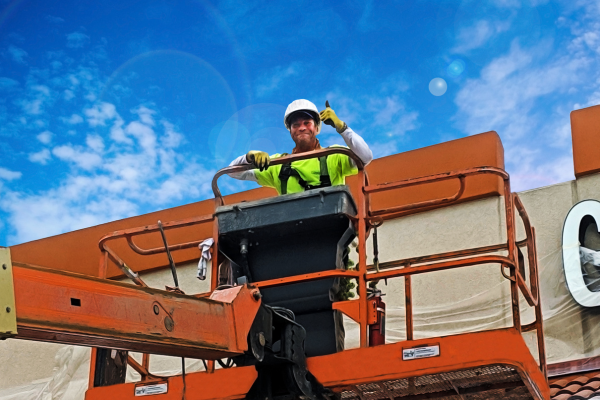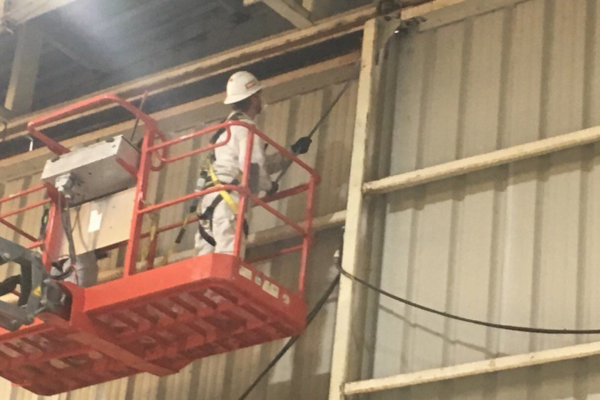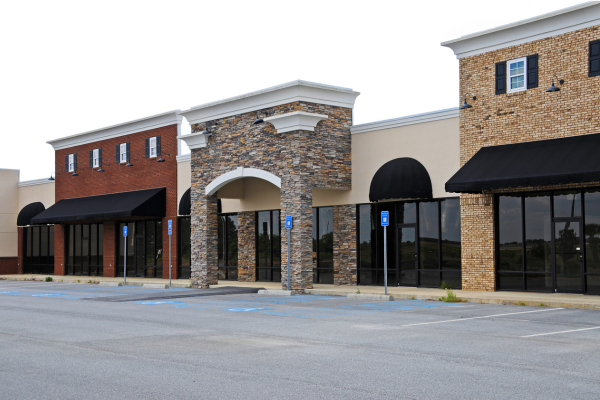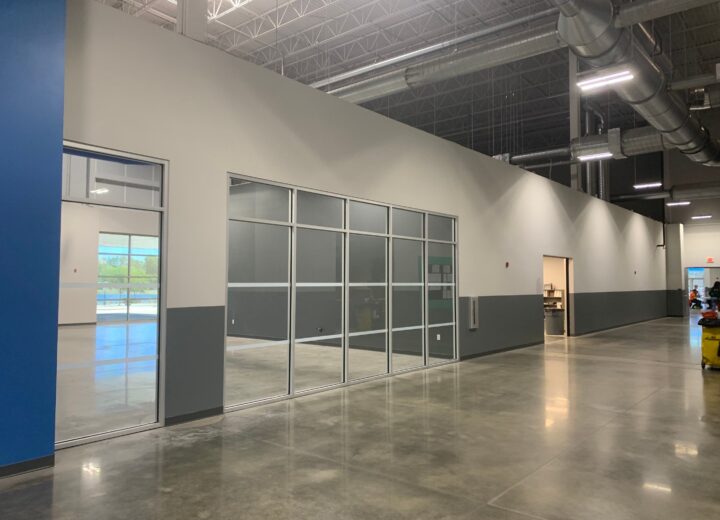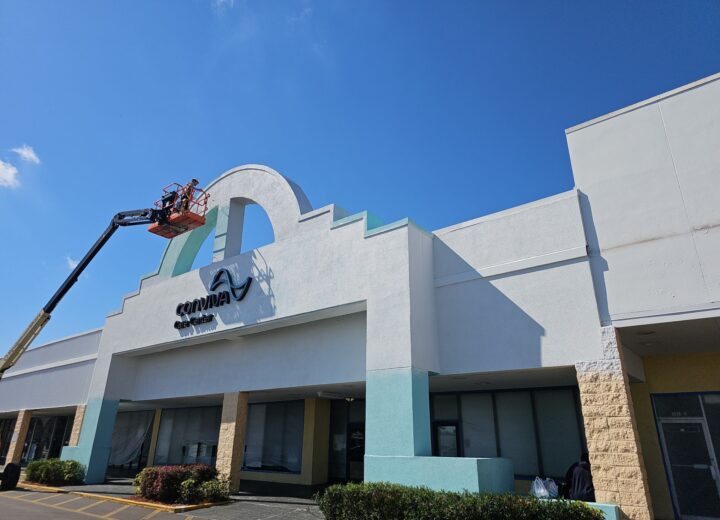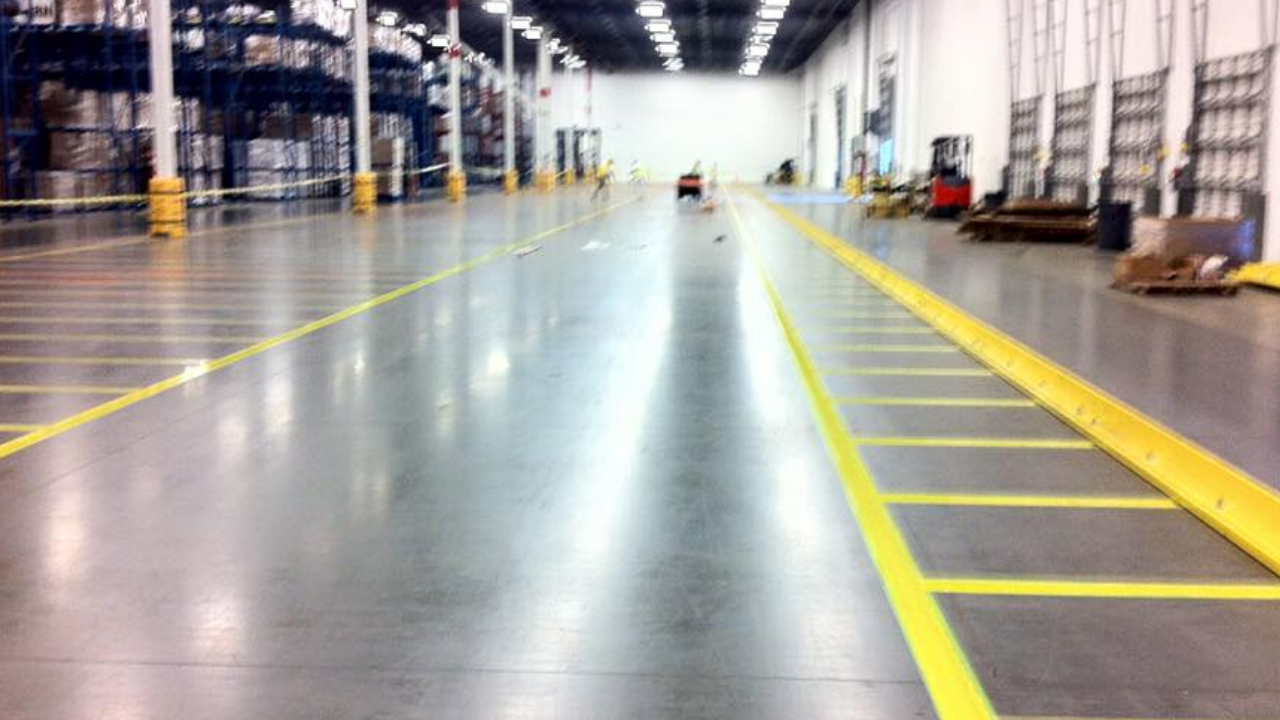 When it comes to specialty industrial coatings, abrasion-resistant coating applications are often overlooked. Facility managers focus a great deal of attention on oxidization and salt attack – rightly so – but may not realize they have additional options suited to their environment.
When it comes to specialty industrial coatings, abrasion-resistant coating applications are often overlooked. Facility managers focus a great deal of attention on oxidization and salt attack – rightly so – but may not realize they have additional options suited to their environment.
What is Industrial Abrasion Damage?
Abrasion refers to damage that scrapes or wears away a surface. In industrial settings, it can occur due to friction between equipment and surfaces. It is often caused incidentally – for example, when moving heavy equipment or loads across the floor. Workplaces, where forklifts and similar vehicles are in regular use, are at particular risk of abrasion.
Abrasion Resistant Coating Options
When comparison abrasion resistant coatings, there are two levels of resistance to consider:
1. Abrasion Resistant Floor Coatings
There are several ways to increase the abrasion resistance of a floor. Some of the most common industrial floor treatments increase durability, but it is important to match them to your precise needs.
Options include:
- Concrete floor polishing
- Epoxy floor systems
- Thin abrasion resistant coatings
Polishing a concrete floor gives it some of the best abrasion resistance of any non-steel material. Performance of the treated floor benefits from extreme density and smoothness.
In many cases, facilities undergo changes in flooring type over time. Epoxy flooring is easy to install over many forms of concrete. Existing paint does not need to be removed first.
However, the concrete floor should be treated to ensure the underlying substrate will be even. Otherwise, epoxy can magnify the concrete’s defects. Structural weakness is the result.
Epoxy-based polymer coating is the final option and often the most cost-effective. An abrasion-resistant coating application can strengthen the substrate against other hazards. These include acids (organic and inorganic), salts, alkalis, alcohols, and hydrocarbons.
2. Abrasion Resistant Metal Coatings
Steel and aluminum, among other metals, can be treated for abrasion resistance. Improving the abrasion resistance of industrial steel products is key to defending their physical integrity.
To perform as expected, coatings for abrasion should have all the following traits:
- Hardness: Harder coatings have greater abrasion resistance as a general rule
- Fracture Toughness: More ductile coatings offer superior long-term durability
- High Bond: Metal-based coatings must be able to resist fracturing into layers
- Low Porosity: Porous materials are more vulnerable to moisture infiltration
A wide variety of abrasion-resistant coatings are on the market today. Many of them must be applied using thermal spray technology to ensure adhesion. Only experienced industrial painting contractors can execute this kind of project safely and efficiently.
Why Use Abrasion Resistant Coating?
There are several reasons to invest in abrasion-resistant coating:
1. Durability
Long-term functionality of your assets is the core reason for any industrial coating. It’s crucial to plan for abrasion resistance the same way you would plan for other, higher profile hazards, like oxidization. The right coating helps you uphold the professional standards of your workplace and avoid unplanned replacement of capital equipment.
2. Safety
Abrasion-resistant coating can enhance the safety of common pathways across your work floor. This is critical for ensuring floors are even and suitable for heavy equipment like forklifts. It also reduces the likelihood of slip and fall accidents, especially in cases where not much clearance is available between obstacles.
3. Maintenance
Coated substrates have a lower cost of ownership. Maintenance tasks are less intensive and take place less frequently. If damage does occur, it is usually easier to repair it. This is valuable in situations where some abrasion is unavoidable. Plus, abrasion-resistant coatings are designed to last for years and rarely need replacement except under extreme conditions.
4. Aesthetics
Aesthetics may not be a consideration in your environment. However, you don’t have to sacrifice appearance for performance when it comes to abrasion-resistant coating. A uniform appearance can have practical applications: A treated concrete floor may take line striping more easily. Appearance can also directly affect team morale and the perceptions of key stakeholders, like inspectors.
5. Versatility
Anti-abrasion coating is very versatile. The proper application not only improves wear resistance but protects against several other common hazards. Such coatings can be compatible with a range of primers and additional treatments. With help from an industrial painting expert, it is possible to develop a coating strategy that truly maximizes longevity.
Industrial Painting Contractors Provides Local Expertise for Abrasion Resistance
Wear resistance might seem like a narrow performance concern, but abrasion damage can lead to sudden and hazardous equipment failures. Even flooring systems face long-term abrasion danger leading to costly repairs.
Industrial Painting Contractors can evaluate your facilities and help you choose the best surface treatments for your needs. Our team delivers fast, courteous service built on the highest safety standards. That has made us the preferred painting contractor among many industrial facilities.

